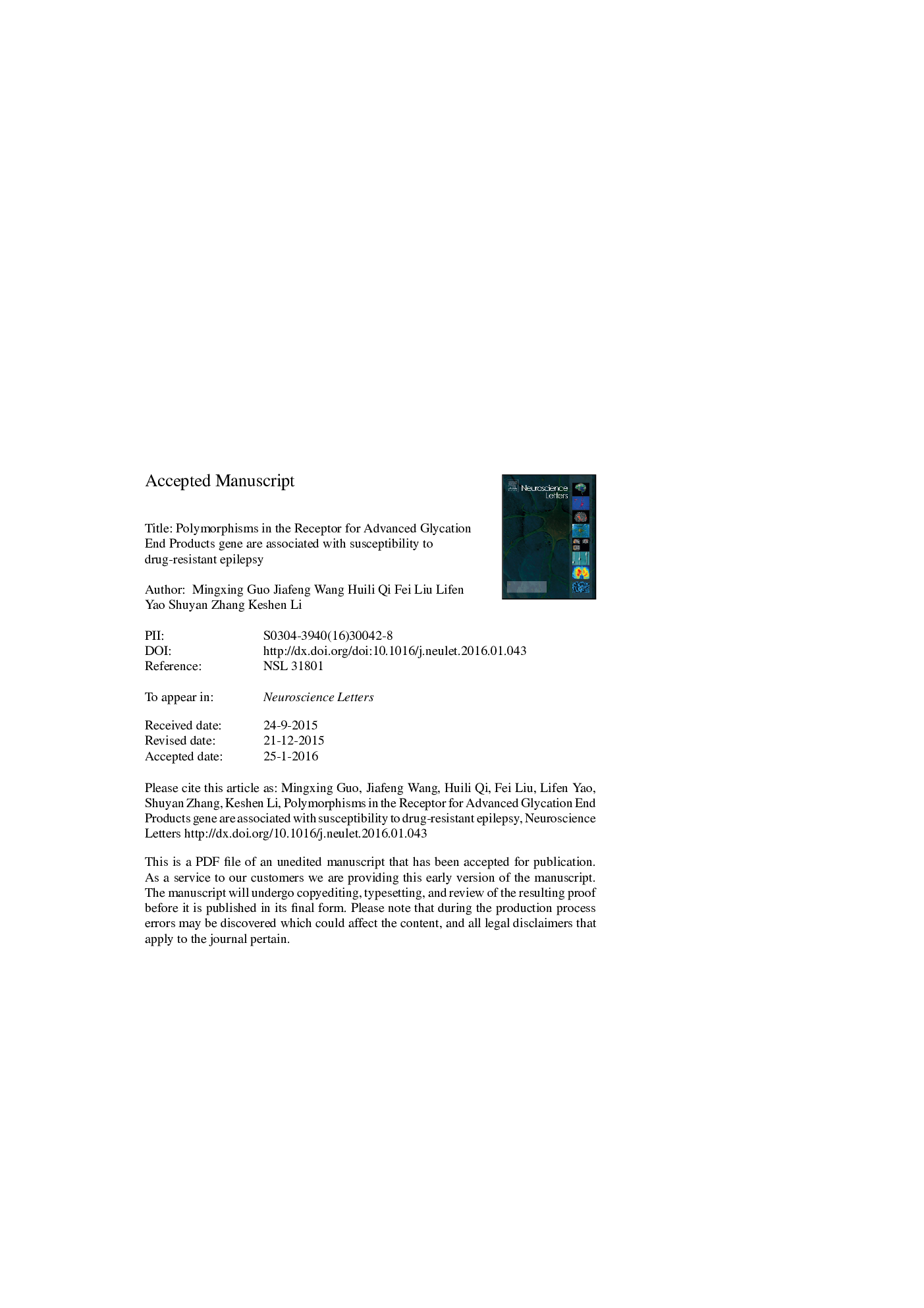| Article ID | Journal | Published Year | Pages | File Type |
|---|---|---|---|---|
| 6279744 | Neuroscience Letters | 2016 | 14 Pages |
Abstract
Increasing evidence has demonstrated that inflammation plays an important role in epilepsy (EP). As a cell-surface molecule of the immunoglobulin superfamily, the receptor for advanced glycation end products (RAGE) is involved in inflammation-related disease. Functional polymorphisms in the regulatory elements and/or ligand-binding regions of RAGE may alter the expression and function of RAGE, thus affecting EP susceptibility. Here, we have identified a novel association between genetic variants in the RAGE G82S locus and EP (p = 0.033) using a case-control study in a Chinese population. Further analyses showed that the 82S+ genotype and S allele were more common in patients with drug-resistant epilepsy (DRE) than in those with drug-responsive EP compared with controls. The loci -374 T/A and -429 T/C did not demonstrate any association with EP, but the haplotype T-A-A exhibited significantly different frequencies between DRE patients and controls (OR = 1.696, 95% CI: 1.188-2.420, P = 0.003). Our study provides preliminary evidence that the G82S polymorphism in RAGE is associated with increased DRE risk and that the GS genotype of the G82S locus is a risk factor for DRE in the Chinese population.
Keywords
TLEreceptor for advanced glycation end productDRERAGEHMGB1AEDsHWEAβamyloid β-proteinElectroencephalographyMRIMajor histocompatibilityAlzheimer’s diseaseEpilepsyMagnetic resonance imagingHardy–Weinberg equilibriumantiepileptic drugsCNScentral nervous systemtemporal lobe epilepsydrug-resistant epilepsy95% confidence intervalMHCAssociation studyodds ratioEEGSingle nucleotide polymorphismHigh-mobility group Box-1
Related Topics
Life Sciences
Neuroscience
Neuroscience (General)
Authors
Mingxing Guo, Jiafeng Wang, Huili Qi, Fei Liu, Lifen Yao, Shuyan Zhang, Keshen Li,
